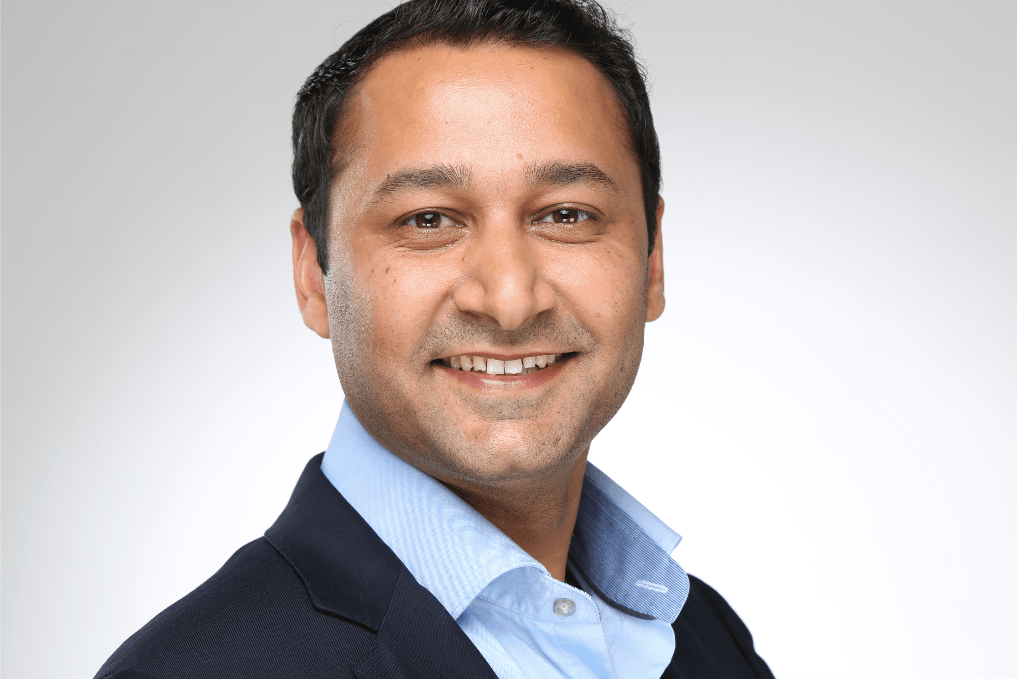Tech
How Can Good Hackers Beat Bad Hackers?

Between 2019 and 2020, the number of successful cybersecurity attacks worldwide has almost doubled from roughly 2,100 to nearly 4,000 data breaches. This has occurred at the same time that the penetration testing (or “Pen Testing”) vertical within the cybersecurity industry has become a multi-billion-dollar market, projected to more than double in size between 2021-2025. With the number of cybercrime incidents rising and with so much at stake in securing our digital information, the question remains, how are successful attacks still rising?
Rapid Digitization Means More Personal Data is Available Online
Twenty years ago, it would have been relatively uncommon for a middle-class home to have more than one computer with internet access, whereas nowadays you would be hard-pressed to find one without an array of technology devices connected to various networks. Because virtually every piece of technology we use in our daily lives is now internet-connected, our personal data is being shared through an increasing number of devices. When those devices and the software and data stored on them is not properly secured, it further adds to the problem of growing cyberattacks.
If a software company hires a cybersecurity consultant to perform Pen Testing services on a new application the company has developed, it may take 2-3 weeks just to get the paperwork in order to conduct the testing, leaving potential vulnerabilities in the software’s data untested and exposed. At the same time, cybersecurity consultants who use scattered software toolkits in their Pen Testing, coupled with human-centric Pen Testing policies, can cost these companies more resources (time and money) in the long run.
Rapid Technological Evolution
Another symptom of rising rates of malicious cyberattacks is the reality that security professionals struggle to match the speed at which our technology, and the data we store in it, evolves. Before IT security professionals can properly secure a new technology that has already been delivered to commercial markets, another newer technology is ready to launch, perpetuating the problem.
Since the onset of COVID-19 last year, more people are using technology to work remotely, adding new challenges for cybersecurity professionals to keep the organizations and people they work with secure. Normally, companies would hire cybersecurity professionals to test their data security, as well as identify, assess, and fill in the gaps found in those defenses. However, the gap between the supply and demand of certified cybersecurity professionals is increasing and there are currently not enough professionals in the industry to perform the amount of testing needed at scale right now.
Beating the Hackers with AI-Backed Pen Testing
The problem of malicious cybersecurity attacks is not linked to a lack of investment in cybersecurity products and services. Rather, the problem arises when these investments are not performing as intended. Every major company and software platform needs cybersecurity testing and we must increase the amount of Pen Testing from certified Pen Testers to help reduce the success of malicious cyber-attacks.
One option is crowdsourcing, where companies bring in a broad amount of hacker expertise from all around the world and test their cybersecurity defense systems. One caution is that this often causes companies to lose control over the process of which defenses are being tested, the methods used in testing, and the frequency of those tests, leaving their data vulnerable to attack.
A second option, one many cybersecurity professionals agree as to the more plausible and advisable one, is to use technology such as Artificial Intelligence (AI) in order to generate algorithms from the process that your Pen Testers perform, allowing for human hackers and AI to complement each other to perform more testing in less time for less cost.
Using this method, companies can secure Pen Testing within 24 hours, rather than waiting 2-3 weeks to file the paperwork traditionally associated with the process. Within 5-6 days, the results are sent to the company’s software developers with recommendations on how to fix any potential threats that were identified. This process makes the entire testing process much easier, faster, more accurate, and more cost-effective for the client. It also allows software development companies to develop at a more rapid pace without sacrificing security, providing additional value to product end-users.
The endgame of cybersecurity professionals is to have a more secure society, but the only way we can achieve this is by including solutions such as AI-backed Pen Testing, allowing security professionals to conduct more tests, more often, in order to generate more accurate results and identify issues that can be fixed proactively, rather than reactively. In using AI-backed Pen Testing processes, companies can ensure that their business’ and their clients’ data are fully protected and remain secure.
Seemant Sehgal is the Founder & CEO of BreachLock Inc. – the world’s first AI-powered full stack and SaaS-enabled Penetration Testing as a Service. Since 2019 BreachLock has quickly emerged as a market disrupter in the traditionally human dependent Penetration Testing market.
Tech
The Importance of Cyber Hygiene: Tips from HelpRansomware Experts

Byline: Katreen David
In the digital age, the adage “an ounce of prevention is worth a pound of cure” has never been more relevant.
For Juan Ricardo Palacio and Andrea Baggio of HelpRansomware, the battle against digital threats is a daily reality. Founded in response to the growing menace of ransomware, HelpRansomware has made it its mission to recover data while educating the public on the importance of cyber hygiene.
“Preventing a cyberattack before it happens is crucial. We can safeguard digital assets more effectively by nipping the threat in the bud through vigilant monitoring and proactive measures,” says Baggio.
The Growing Threat of Cybercrime
Cyber threats have become increasingly pervasive and sophisticated, impacting businesses and individuals alike. According to research, there are an estimated 2,000 cyberattacks per day globally. This equates to over 800,000 cyber crimes annually. In line with this, the worldwide cost of cybercrime is projected to reach the $23 trillion mark by 2027.
This alarming figure highlights the critical need for robust cybersecurity practices. HelpRansomware has responded to this challenge by accentuating the importance of preventive measures. “Our goal is to create a safer digital environment where cyber hygiene is as natural as brushing your teeth,” says Palacio.
Cyber Clean: Maintaining Digital Hygiene
HelpRansomware advocates for a proactive outlook on cybersecurity. It offers practical tips for maintaining good cyber hygiene, such as regularly updating software, using strong and unique passwords, developing risk management plans, and educating employees about phishing scams.
“Cyber hygiene is about taking small, consistent actions to protect your digital assets,” explains Palacio. “When we practice good cyber hygiene, the chances of cyber attacks occurring shrink significantly.”
Businesses can significantly reduce cyberattack vulnerability by integrating these practices into daily routines.
HelpRansomware’s Role in Promoting Cyber Hygiene
Beyond recovery services, HelpRansomware is dedicated to raising awareness and providing education on cybersecurity best practices. It conducts workshops and seminars to help organizations understand the importance of cyber hygiene. This unique initiative mirrors the company’s sincere efforts toward shielding the world from the dark side of the web.
“Education is the first line of defense against cyber threats,” emphasizes Baggio. “Francis Bacon’s famous quote will always ring true in every industry: ‘Knowledge is power’.”
HelpRansomware’s efforts are power moves across the board that help businesses recover from attacks. Its checkmate move, however, is its vision to build a culture of prevention that can safeguard against future threats.
In an era where cyber threats lurk around every unlikely corner of the internet, the importance of cyber hygiene cannot be overstated. Through its innovative solutions and educational initiatives, HelpRansomware is leading the pack in promoting better cybersecurity practices. “We believe that a well-informed and vigilant community can defeat cybercrime,” concludes Baggio.
HelpRansomware’s proactive stance on cyber hygiene is setting new standards in the industry. Through education and preventive practices, Andrea Baggio and Juan Ricardo Palacio are fortifying the digital community, making sure that future cyber threats are met with informed and resilient defenses. Cleanliness matters in both the tangible and digital world.
-

 Tech4 years ago
Tech4 years agoEffuel Reviews (2021) – Effuel ECO OBD2 Saves Fuel, and Reduce Gas Cost? Effuel Customer Reviews
-

 Tech6 years ago
Tech6 years agoBosch Power Tools India Launches ‘Cordless Matlab Bosch’ Campaign to Demonstrate the Power of Cordless
-

 Lifestyle6 years ago
Lifestyle6 years agoCatholic Cases App brings Church’s Moral Teachings to Androids and iPhones
-

 Lifestyle4 years ago
Lifestyle4 years agoEast Side Hype x Billionaire Boys Club. Hottest New Streetwear Releases in Utah.
-

 Tech6 years ago
Tech6 years agoCloud Buyers & Investors to Profit in the Future
-

 Lifestyle5 years ago
Lifestyle5 years agoThe Midas of Cosmetic Dermatology: Dr. Simon Ourian
-

 Health6 years ago
Health6 years agoCBDistillery Review: Is it a scam?
-

 Entertainment6 years ago
Entertainment6 years agoAvengers Endgame now Available on 123Movies for Download & Streaming for Free
